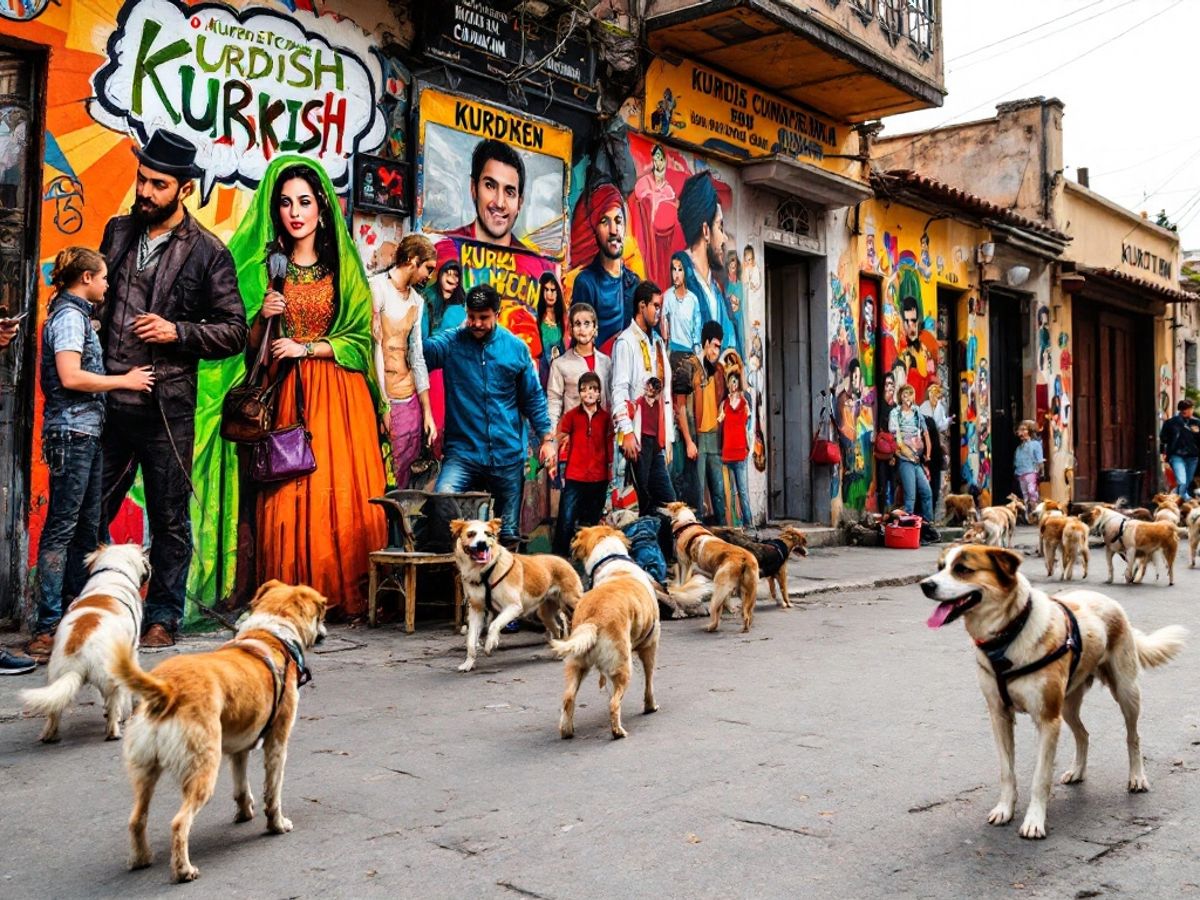Turkey is currently facing significant cultural and political challenges, highlighted by two major issues: the controversial "massacre law" targeting stray dogs and the ban on the Kurdish film "Rojbash." These events have sparked widespread outrage and raised questions about the government’s stance on animal rights and cultural expression.
Key Takeaways
- The Turkish government has introduced a bill to round up stray dogs, leading to protests across the country.
- The ban on the Kurdish film "Rojbash" has ignited debates about freedom of expression and cultural rights.
The Massacre Law and Stray Dogs
In a move that has drawn sharp criticism, the Turkish government has proposed a bill that would require the rounding up of an estimated four million stray dogs. This legislation, dubbed the "massacre law" by animal rights activists, has incited protests in cities like Istanbul, where demonstrators gathered in Maltepe Park to voice their opposition.
- Public Sentiment: A recent poll indicated that only 2.7% of Turks support the killing of stray dogs, reflecting a strong public sentiment against such measures.
- Protests: Activists argue that the law is a guise for mass euthanasia, with many shelters already struggling to care for the influx of animals. Protesters have emphasized that the law contradicts Turkey’s long-standing tradition of caring for street animals.
Cultural Suppression: The Case of "Rojbash"
In another troubling development, the Turkish Culture and Tourism Ministry has banned the Kurdish film "Rojbash" from theaters, claiming it is "not suitable for commercial circulation." The film, directed by Özkan Küçük, explores the challenges faced by Kurdish artists in a country where the use of the Kurdish language has historically been suppressed.
- Content of the Film: "Rojbash" tells the story of a Kurdish actor attempting to revive a play that highlights the struggles of Kurdish culture and language.
- Legal Battle: The film’s director has vowed to fight the ban, arguing that it infringes on freedom of expression and is a form of censorship.
Historical Context
Both issues reflect a broader trend of cultural and political repression in Turkey. The treatment of stray animals has shifted dramatically under President Erdoğan’s administration, which has increasingly portrayed them as a nuisance rather than a part of the urban landscape.
- Cultural Heritage: Historically, Istanbul has been known for its compassion towards stray animals, with shopkeepers often providing food and shelter during harsh winters.
- Kurdish Language Suppression: The ban on Kurdish cultural expressions, including films and music, has been a recurring theme in Turkish politics, particularly since the failed coup attempt in 2016.
Conclusion
The recent events surrounding the treatment of stray dogs and the ban on the Kurdish film "Rojbash" highlight the ongoing cultural and political struggles in Turkey. As public outcry grows, these issues may serve as a litmus test for the government’s commitment to animal rights and cultural freedoms. The future of both stray animals and Kurdish cultural expression hangs in the balance, as activists continue to fight for change in a country grappling with its identity and values.
Sources
- Turkey’s ‘massacre law’ for stray dogs sparks outrage, inews.co.uk.
- Turkey’s culture ministry bans Kurdish movie ‘Rojbash’ in theaters – Stockholm Center for Freedom, Stockholm Center for Freedom.






